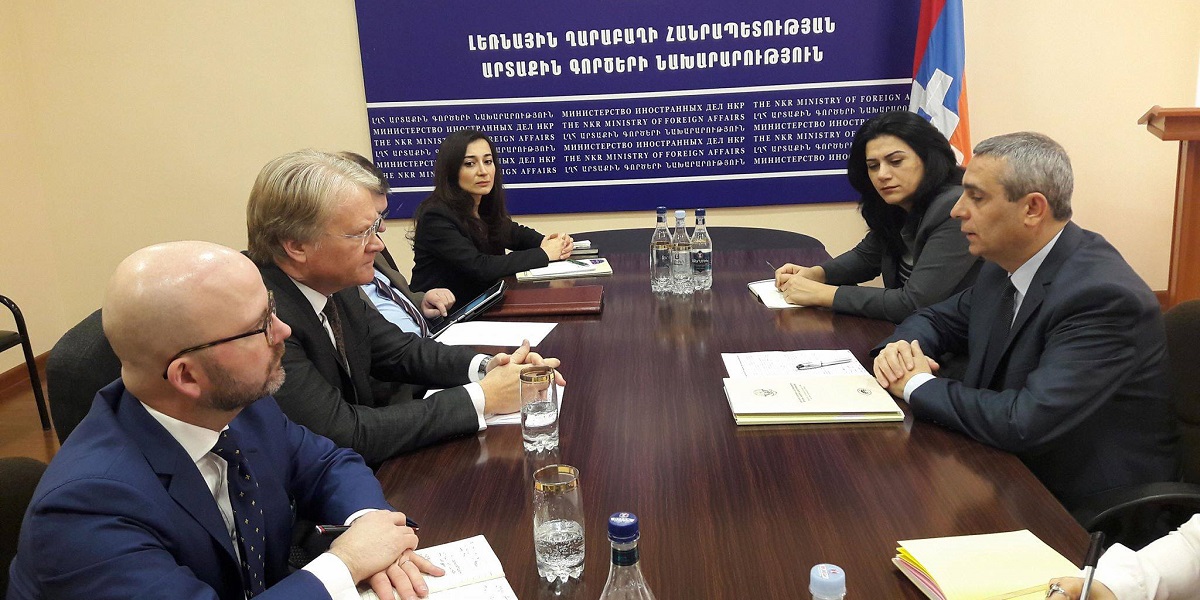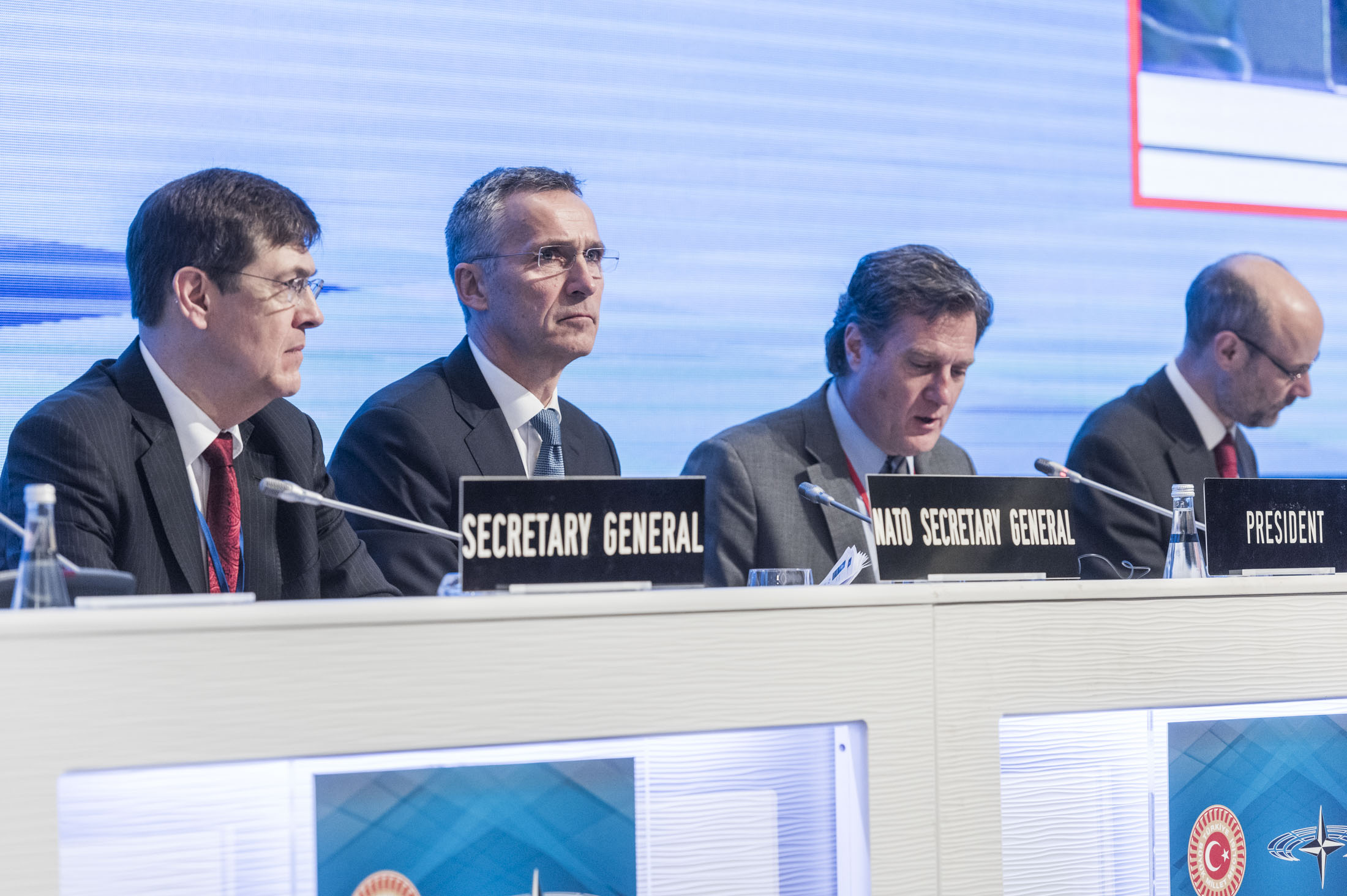The US President issued his “Armenian Remembrance Day” declaration on April 24 and as expected, did not use the word genocide. However, just as in the previous years, by using “Meds Yeghern” (great tragedy), understood to be one of the Armenian words corresponding to genocide, he wanted to at least partially satisfy the Armenians.
The statement made this year shows similarities with that of last year in terms of context and sometimes even word to word and depicts the same themes. Although not directly using the word genocide, by indicating that a full, frank and just acknowledgment of the facts are in the interests of all and that nations grow stronger by acknowledging painful elements of the past, it is indirectly suggested for Turkey to recognize the genocide allegations. On the other hand, it is expressed that the US recognize those “courageous” Turks and Armenians who have already taken this path and encourage more to do so, with the backing of their government and the US President. What is unclear at this point is which event of the past the Armenians must recognize. Actually, on the path to 1915 and following 1915, the Armenians have committed shameful acts on a broad basis extending from their atrocities in Eastern Anatolia to political crimes. The recognition of these could contribute to a possible Turkish-Armenian reconciliation. However, Armenian public opinion is very far from such an idea. Armenian atrocities are either ignored or underestimated. On the other hand, political crimes, contrary to all legal rules, are considered as justice being administered.
Despite President Obama’s soft language, his statement has received negative reactions from both the Turks and the Armenians.
Executive Director of the Armenian National Committee of America, a Dashnak organization, has put forth that the President’s retreat under Turkish pressure comes despite his own pledges to acknowledge the Armenian genocide and that he has worked together in Turkey’s denial of truth and ongoing obstruction of justice.
On the other hand, Ergun Kırlıkovalı, Chairman of the Assembly of Turkish-American Associations, after providing brief information on historical events in a letter sent to President Obama, he has indicated that they mourn the loss of lives of both Turks and Armenians and they do not deny that massacres occurred, but disagree that massacres constitute genocide as defined by the UN Convention. Moreover, it is expressed in the letter that Parliaments of Turkey and Armenia should ratify the Protocols of 2009 and normalize relations between the two nations, parallel with the removal of Armenian forces from Azerbaijan and the return of over one million Azeri refugees to their homes.
The Turkish Foreign Ministry, has also issued a statement, indicating that they regard the President’s statement which distorts the historical facts as problematic in every aspect and deeply regret it. Furthermore, it has pointed out that such statements damage both Turkish-Armenian relations and also render it more difficult for Turks and Armenians to reach a just memory. On the other hand, it has expressed that they expect from the US not to further deepen the problem, but to provide constructive contributions for its resolution and to encourage the Armenian side, which avoids objective and scientific research of the issue, to be more realistic and conciliatory. The Foreign Ministry’s statement ends with declaring that despite a prejudiced attempts to hinder a correct understanding of history, Turkey approaches the issue with self-confidence and an open-mind and wants the truth to be investigated in all its aspects.
Armenia has shown no reaction to Obama’s statement. However, it is normal for the word genocide not being openly expressed in the text to disturb them just as it has disturbed the Diaspora.
This way, just as President Obama’s 24 April statement has not pleased the Turks and Armenians owning American citizenship, it has also displeased Turkey and most likely Armenia too.
We hope that the issuing of these presidential statements, which puts forth the same views each year, has no definite function, does not please any of the concerning parties and in fact deepens the disagreement between them, and moreover causes the US President to be criticized, be abandoned for the coming years.
© 2009-2025 Center for Eurasian Studies (AVİM) All Rights Reserved
TURKEY AND THE RUSSIAN BASE IN GYUMRI
AUSTRIA AND LUXEMBURG: EFFORTS TO REPAIR RELATIONS
 VISIT OF SWEDISH MEMBER OF THE EUROPEAN PARLIAMENT TO KARABAKH: FORGOTTEN MISERY OF AZERBAIJANIS
VISIT OF SWEDISH MEMBER OF THE EUROPEAN PARLIAMENT TO KARABAKH: FORGOTTEN MISERY OF AZERBAIJANIS
 WHY IS ARMENIA SITTING IN A NATO FORUM?
WHY IS ARMENIA SITTING IN A NATO FORUM?
 TURKS AND ARMENIANS
TURKS AND ARMENIANS




























